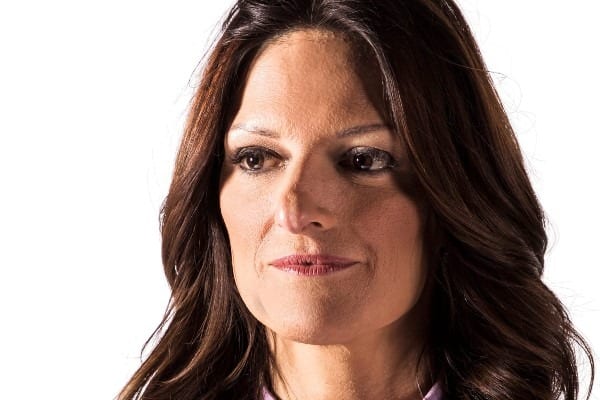“I have not . . . because I would never put myself in that position . . . I have always made choices from college age on, where I never drank too much. I never went home with someone that I didn’t know, I never, I just never put myself in any vulnerable circumstance, ever,” replied Rotunno.
Her comments were, rightly, seized upon by critics as classic victim blaming. “There’s a special place in hell for Harvey Weinstein’s lawyer,” declared The Cut.
Well yes. That’s obvious.
But listening back to Rotunno’s interview — and putting her comments and overall argument in context — I concluded that she has a far more sinister agenda that goes well beyond glibly wheeling out tired victim blaming tropes in defence of her client. Rotunno is powerfully determined to ensure Weinstein’s legal case serves as a referendum on #MeToo, and if she succeeds, that could have long lasting consequences.
Here’s my theory. If, as many critics claim, alleged perpetrators are being tried and convicted in the so-called “court of public opinion” rather than the court of law where they are owed “due process”, Rotunno, who has embarked on a media blitz since taking the gig as Weinstein’s lawyer, is focused on pleading her case in the former.
Central to her thesis: the damaging notion that there is a difference between “real rape” and so-called “grey rape”.
“Grey rape” is a particular kind of rape myth that gained traction over the last thirteen years. It was first coined in a 2007 Cosmo article entitled, “A New Kind of Date Rape”, which described it as “sex that falls somewhere between consent and denial and is even more confusing than date rape because often both parties are unsure of who wanted what”.
Proponents of “grey rape” tend to blame “hook-up culture” and changes in sexual mores for blurring the boundary between how men and women are supposed to act, i.e. men as natural initiators of sex and women as gatekeepers.
Now that it’s okay for women to have casual sex, how are men supposed to navigate the gauntlet of “mixed signals” and “blurred boundaries”? Poor men. They are so terribly confused.
If this idea that there’s a (newish) lack of clarity around consent can be normalised, “grey rapes” can be excused as an accident – something that results from a misunderstanding. In all its manifestations, “grey rape” argues that some forms of sexual assault are less serious or trivial. They’re not “real rape”.
At the same time that “grey rape” as a concept has taken hold, sexual violence campaigners have continued their campaign to retire the enduring myth of “real rape” and raise awareness of “date” and “acquaintance” rape. “Real rape”, as some would define it, happens when a half-crazed man jumps out from behind the bushes, assaults a woman with force and she actively fights him off – all the better if he has a weapon and she sustains serious physical injury.
But we now know that the vast majority of rapes don’t fit that description. Most rapes occur in private homes, the victims know their perpetrators, and alcohol is often involved – with evidence it is frequently used as a weapon.
As the wider community and courts have begun to understand the reality of rape, “grey rape” has conveniently arrived to muddy the waters. And in the conversation that follows Rotunno’s now widely condemned victim blaming remark, it becomes abundantly clear that “grey rape” is what she’s on about.
When asked by Twohey, “Do you think it’s possible for women to take all of those precautions and still be sexually assaulted?”, Rotunno answers that, “being pulled into a dark alley is a totally different conversation.”
She goes on to argue that: “If you go out with someone, you can’t have it both ways. We can’t have things like Tinder, where people swipe right and go meet whoever they meet — and most of the time those are sexual interactions — and then say, you know what? I went out with them, and I went to their house and we were flirting or kissing or whatever. And then say I had no idea that he may want to do this. You just can’t have it both ways.”
For Rotunno — and others in the “grey rape” camp — women’s sexual agency is an all or nothing proposition. If they want the “right” to be “promiscuous” (what I would just call sexually active) they don’t also get the right to determine the boundaries of that sexual activity. Men, it would seem, don’t come with an off switch with modern women dangling tempting sexual wares in front of them. Rape is positioned as the price of the sexual revolution.
In hiring Donna Rotunno as his lawyer, I can only conclude that Weinstein hopes she will prove far more effective outside the court-room than inside – as a powerful agent for this particularly virulent form of backlash — as he takes on a cause bigger than him, positioning himself as patient zero of a rapidly changing culture that has empowered women, whilst victimising men. How very noble.
But while the jurors in the criminal case will be asked to deliberate the facts of the case and draw their conclusions, I hope the rest of us, those in that court of public opinion, will likewise deliberate (and reject) this insidious attempt to undermine a movement. I, for one, don’t want to live in a world tinged with grey.
Kristine Ziwica tweets @KZiwica


